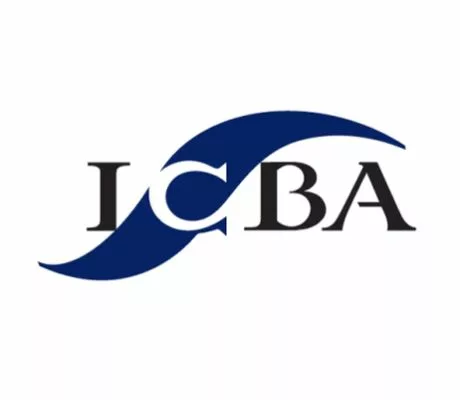The ICBA is calling for an investigation into the tax exemption enjoyed by credit unions. Recent announcements of credit unions acquiring community banks have prompted concerns about the fairness of the tax exemption. With the ten-year treasury yield reaching levels not seen in 15 years, and more credit unions snapping up community banks, the ICBA argues that it is time for Congress to reassess the tax exemption status of credit unions. This article explores the ICBA’s reasoning and the potential implications of such an investigation.

This image is property of www.bankingexchange.com.
Table of Contents
ICBA Calls for Congressional Investigation
Statement by ICBA
The Independent Community Bankers of America (ICBA) has issued a statement calling for a congressional investigation into the credit union tax exemption. The ICBA believes that this exemption gives credit unions, which are direct competitors to community banks, an unfair advantage in the financial industry. They argue that this tax exemption has allowed credit unions to grow rapidly and acquire community banks, further exacerbating the competitive disadvantage faced by community banks.
Reasons for Investigation
There are several reasons why the ICBA believes that a congressional investigation into the credit union tax exemption is necessary. Firstly, they argue that this exemption creates a competitive disadvantage for community banks. While credit unions enjoy tax-exempt status and are able to offer similar services as banks, community banks are burdened with additional tax obligations. This puts community banks at a significant disadvantage in terms of pricing and profitability.
Another reason for the investigation is the loss of revenue for the government. As credit unions continue to grow and acquire community banks, the government is losing out on potential tax revenue. The ICBA argues that this loss of revenue further disadvantages community banks, as they are left to shoulder the tax burden while credit unions enjoy tax-exempt status.
Credit Union Tax Exemption Explained
What is the Credit Union Tax Exemption?
The credit union tax exemption is a provision in the U.S. tax code that grants credit unions tax-exempt status. This means that credit unions do not have to pay federal income tax on their earnings, unlike traditional banks. The rationale behind this exemption is that credit unions are not-for-profit institutions that primarily serve their members and promote access to affordable financial services.
Historical Background of Credit Union Tax Exemption
The credit union tax exemption has its roots in the early 20th century when credit unions were first established as a means to provide financial services to underserved communities. At the time, credit unions operated on a small scale and were primarily focused on serving their members. As the credit union movement gained momentum, Congress recognized the value of these institutions and granted them tax-exempt status.
Impact on Community Banks
Competitive Disadvantage
The credit union tax exemption has created a competitive disadvantage for community banks. While credit unions enjoy tax-exempt status and are able to offer similar services as banks, community banks are burdened with additional tax obligations. This puts community banks at a significant disadvantage in terms of pricing and profitability. Community banks are faced with higher operating costs due to their tax obligations, while credit unions can offer lower rates and fees due to their tax-exempt status.
Loss of Revenue for Government
Another impact of the credit union tax exemption is the loss of revenue for the government. As credit unions continue to grow and acquire community banks, the government is losing out on potential tax revenue. This loss of revenue not only affects the government’s ability to fund essential programs and services, but it also puts community banks at a further disadvantage. Community banks are left to shoulder the tax burden while credit unions enjoy tax-exempt status.
Recent Credit Union Acquisitions
Overview of Recent Acquisitions
In recent years, there has been a surge in credit union acquisitions of community banks. These acquisitions have been driven by the growth and expansion of credit unions, which have been able to take advantage of their tax-exempt status to expand their operations. In some cases, credit unions have acquired multiple community banks, further consolidating their market power.
Concerns Raised by ICBA
The ICBA has raised concerns about the recent surge in credit union acquisitions. They argue that these acquisitions further exacerbate the competitive disadvantage faced by community banks. As credit unions continue to grow and acquire community banks, community banks are being squeezed out of the market, limiting choice and competition for consumers.

This image is property of www.bankingexchange.com.
Arguments for Credit Union Tax Exemption
Credit Unions as Not-for-Profit Institutions
One of the main arguments for the credit union tax exemption is that credit unions are not-for-profit institutions that primarily serve their members. Unlike traditional banks, credit unions are owned and operated by their members, who are also their customers. The tax exemption allows credit unions to operate on a smaller profit margin and reinvest their earnings back into the institution, ultimately benefiting their members.
Promoting Access to Financial Services
Another argument for the credit union tax exemption is that it promotes access to affordable financial services. Credit unions primarily serve underserved communities and individuals who may have difficulty accessing financial services from traditional banks. The tax exemption allows credit unions to offer lower rates and fees, making financial services more affordable and accessible to those who need them the most.
Difference between Credit Unions and Banks
Structure and Membership
One of the key differences between credit unions and banks is their structure and membership. Credit unions are owned and operated by their members, who are also their customers. In contrast, banks are typically owned by shareholders and are operated for profit. This difference in ownership structure allows credit unions to prioritize the needs of their members and operate on a smaller profit margin.
Regulatory Oversight
Another difference between credit unions and banks is the regulatory oversight they are subject to. Banks are subject to comprehensive federal regulations, such as the Dodd-Frank Act, which aim to ensure the safety and soundness of the banking system. Credit unions, on the other hand, are subject to a separate regulatory framework overseen by the National Credit Union Administration (NCUA). This regulatory framework is tailored to the unique characteristics of credit unions and focuses on promoting their mission of serving their members.

This image is property of www.bankingexchange.com.
Legislative Proposals to Address Tax Exemption
Previous Attempts by Congress
Congress has made previous attempts to address the credit union tax exemption. In the past, legislation has been introduced to limit the scope of the tax exemption or to impose additional regulatory requirements on credit unions. However, these attempts have been met with opposition from the credit union industry, which argues that any changes to the tax exemption would limit their ability to serve their members and promote access to financial services.
Current Proposed Legislation
Currently, there is proposed legislation in Congress that seeks to address the credit union tax exemption. Some proposals aim to impose stricter eligibility criteria for credit unions to qualify for tax-exempt status, while others seek to limit the size or scope of credit unions’ operations. These proposals are still being debated and have yet to be enacted into law.
Tax Exemptions for Other Financial Institutions
Comparisons to Other Financial Institutions
The credit union tax exemption has been a subject of debate due to the different treatment of credit unions compared to other financial institutions. Traditional banks and other financial institutions are subject to federal income tax on their earnings. The credit union tax exemption has been criticized for creating an uneven playing field in the financial industry and giving credit unions an unfair advantage over their competitors.
Arguments for Equal Treatment
Proponents of equal treatment argue that all financial institutions should be subject to the same tax obligations. They argue that the credit union tax exemption not only creates a competitive disadvantage for banks, but it also results in a loss of tax revenue for the government. Equal treatment would level the playing field and ensure that all financial institutions are subject to the same tax requirements.
Potential Consequences of Investigating Tax Exemption
Impact on Credit Unions
Investigating the credit union tax exemption could have significant consequences for credit unions. If the investigation leads to changes in the tax exemption or additional regulatory requirements, credit unions may face increased operating costs and a more challenging business environment. This could ultimately impact their ability to serve their members and promote access to financial services, which is the primary mission of credit unions.
Impact on Community Banks
On the other hand, investigating the credit union tax exemption could potentially benefit community banks. If the investigation leads to changes that level the playing field between credit unions and community banks, community banks may experience a reduction in their competitive disadvantage. This could result in increased profitability and a more level playing field in the financial industry.
Conclusion
The credit union tax exemption has been a subject of debate for many years, with arguments on both sides. The ICBA calls for a congressional investigation into the tax exemption, citing the competitive disadvantage faced by community banks and the loss of tax revenue for the government. While credit unions argue that they are not-for-profit institutions that promote access to financial services, there are concerns about the impact of their rapid growth and acquisition of community banks. Ultimately, the outcome of the investigation and any potential legislative changes will have significant implications for both credit unions and community banks, as well as the overall financial industry.

